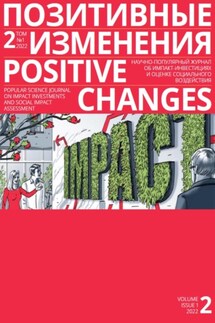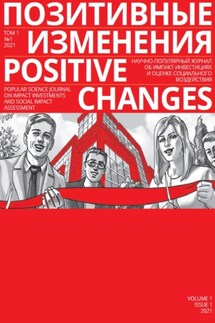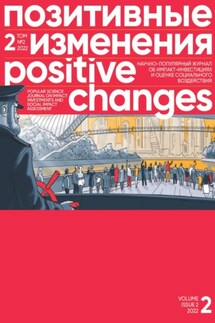Позитивные изменения. Образование. Школа будущего. Тематический выпуск, 2022 / Positive changes. Education. The school of the future. Special issue, 2022 - страница 20
We have almost no separate philologists and separate mathematicians. It all comes down to the lack of people.
It is clear that if there is no supply, there is no demand, but does it work the other way around? If such a school were is to be opened, based on the Finnish model, for example, how popular will it be if it is implemented in Russia the way it is in Finland?
If it is implemented competently, then it all comes down to price. Most of my clients, perhaps I do not have such a representative sample, but in general people say the cost of education they find comfortable is up to 100,000 rubles. 100,000 is some kind of watershed. This is now, given the current exchange rate. Once upon a time, two or three years ago, people were saying: "50 at best.”
To what extent are parents ready to understand that the Unified State Exam is not the only benchmark for the quality of a child's education at school?
A very small group. This is what needs to be investigated. It seems to me that everyone wants something more, but in fact everyone only cares about passing the USE. The child has to enter a University (especially a boy).
What do parents of preschoolers say most often, what is their request?
More often than not, they say: "We want to make sure that the child’s motivation to study is not destroyed." Or even better: they want the child to be motivated to study, to be eager, ready and excited to learn new things and develop. But at the same time, he or she needs to be able to enter a good, solid school. It is also about the USE, so the child does not lose his or her academic skills. I keep explaining and telling them: "You see, getting into a good school in the form that exists in our reality is just a sports competition. That is why you have to prepare for it." Everything here is like sports competitions. The child may not have outstanding cognitive abilities, and it is hard for parents to accept that. Perhaps the child simply does not need to go to such a school, instead he or she would learn happily at the right level.
We recently spoke with a mother who returned from Ireland, she wanted to find a primary school here for her children, grades 1–2. She said: "Look, when we came to Ireland, we were told to just go to school. They just sign you up and you start going there. It is okay, they will learn the language, they will study." This is it. And the kids are somehow studying. She said: "Here we came to a school with an English focus, an old private school, and they told us: your Russian is not very good, you should work with tutors at home for now, improve your language skills, then come to us in three months for testing." The point here is that our school believes it does not exist for the person, but the person exists for the school. So as soon as a child has some peculiarities, the school gets nervous.
So we can say that the School of the Future is an inclusive school?
In principle, yes, an inclusive school. If the school has its own resource department – that would be great. The resource department is a staff of neuropsychologists and speech therapists. For example, a child with ASD comes to school, he or she can study individually. They make up a schedule for him/her, for example, his/her first two lessons are individual. Then he/she joins the class for more lessons. That is, the resource department is just a kind of team of specialists, several rooms in a separate block where children can work individually or in a mini group of two or three people.









